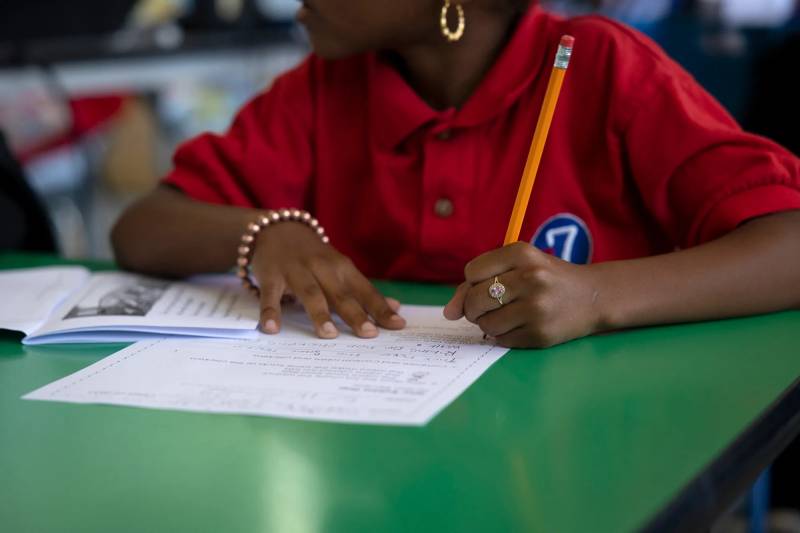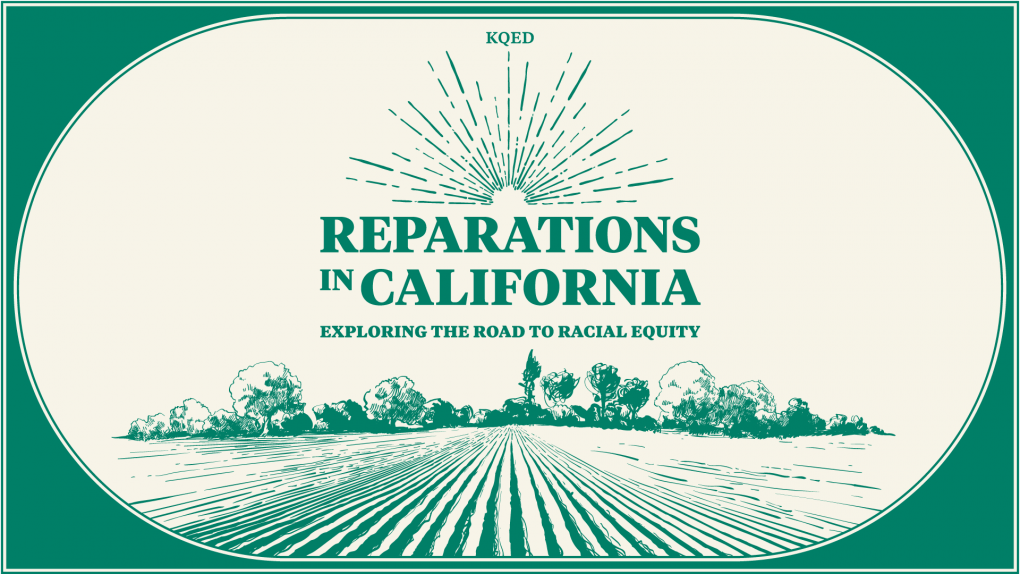As part of our Juneteenth reparations radio takeover, KQED’s Azul Dahlstrom-Eckman sat down with Fortune to discuss how California’s reparations proposals could help underserved Black students.
This conversation has been edited for brevity and clarity.
Azul Dahlstrom-Eckman: At a March meeting of the reparations task force, you provided expert testimony on racial disparities in education. What’s the state of the African American achievement gap in California schools now?
Margaret Fortune: Seventy percent of African American students in the state of California’s public schools do not read or write at grade level, and 84% are not achieving at grade level in mathematics. What we’re talking about is persistent, low African American student achievement in a way that is really shocking but has been normalized in California. And it’s something that we should change and invest in. And because there has been a reluctance to address the needs of African American students specifically, you get these kind of vague, amorphous approaches that haven’t demonstrated that they move the needle in a positive direction for Black students in particular.
What are your thoughts on the recommendations contained in the task force’s latest report, and how might they help address the achievement gap?
One of the recommendations that the report has made is a way to provide additional funding through the local-control funding formula. That’s how California funds schools and every school gets a base amount, and then you get more grants if you’re serving high-needs students. The legislation that we proposed, and that the reparations task force acknowledged and calls out as a potential remedy, would have included the lowest-performing subgroup in the state, driving additional dollars to the schools that serve them.
I think it’s high time that we focus in particular on the lowest-performing group. It’s not because of their race, it’s because of their academic performance. It’s about driving funding to the students that need the most help. There are 80,000 Black kids sitting outside the funding formula that belong to the lowest-performing subgroup in the state. What the reparations task force is suggesting is that we should invest in this group, and there is a race-neutral way to do it. I like that the reparations task force is not falling into this trap of people using income as a proxy for race.
What challenges do you think the final report’s proposals might face in the state Legislature?
I think the Legislature is actually quite open to the idea that African American students deserve support. I think the attorney general’s office has that point of view because it’s the one issuing this report. Where these proposals that benefit Black students run into trouble is in the governor’s office. The governor’s office has a preoccupation with the idea that anything that benefits Black people in particular is unconstitutional. I think that it’s not the Legislature where these proposals will run into troubles, it’s the governor’s office.
Oakland and Berkeley have initiated their own reparations efforts at the school-district level. I’m wondering what you make of these. Is racial inequality something that school districts can effectively take on or is this something that should be addressed at a state level?


